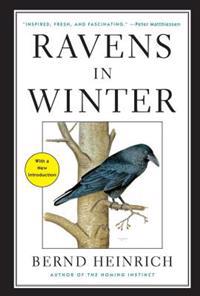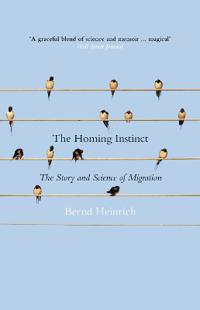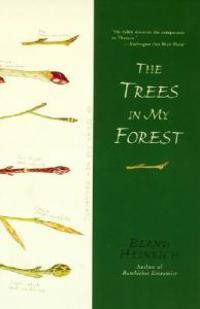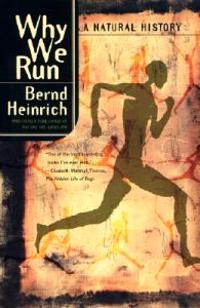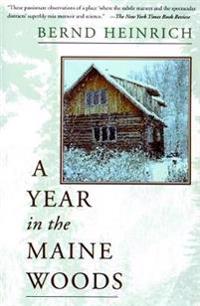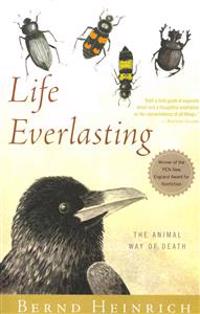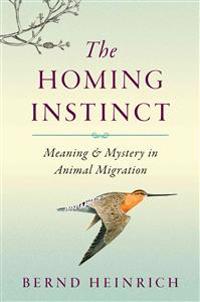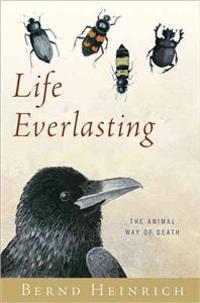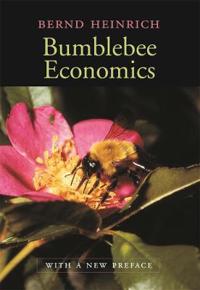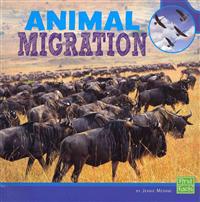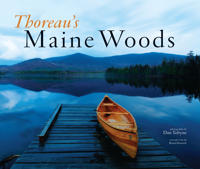Ravens in Winter (Häftad)
avBernd Heinrich, Bernd Heinrich
ISBN: 9781476794563 - UTGIVEN: 2014-10"One of the most interesting discoveries I've seen in animal sociobiology in years." "--"E.O. Wilson""
Why do ravens, generally understood to be solitary creatures, share food between each other during winter? On the surface, there didn't appear to be any biological or evolutionary imperative be[...]The Homing Instinct (Inbunden)
avBernd Heinrich
ISBN: 9780007594054 - UTGIVEN: 2014-08The story and science of how animals find their way home. Home is the place we long for most, when we feel we have travelled too far, for too long. Since boyhood, acclaimed scientist and author Bernd Heinrich has returned every year to a beloved patch of woods in his native western Maine. But while [...]
The Trees in My Forest (Häftad)
avBernd Heinrich
ISBN: 9780060929428 - UTGIVEN: 199809Winner of the New England Book Award Best Nonfiction Award and the Franklin Fairbanks Award of the Fairbanks Museum In a book destined to become a classic, biologist and acclaimed nature writer Bernd Heinrich takes readers on an eye-opening journey through the hidden life of a forest.[...]
Why We Run: A Natural History (Häftad)
avBernd Heinrich
ISBN: 9780060958701 - UTGIVEN: 200205In Why We Run, biologist, award-winning nature writer, and ultramarathoner Bernd Heinrich explores a new perspective on human evolution by examining the phenomenon of ultraendurance and makes surprising discoveries about the physical, spiritual -- and primal -- drive to win. At once lyrical and scie[...]
Mind of the Raven: Investigations and Adventures with Wolf-Birds (Häftad)
avBernd Heinrich
ISBN: 9780061136054 - UTGIVEN: 200705Heinrich involves us in his quest to get inside the mind of the raven. But as animals can only be spied on by getting quite close, Heinrich adopts ravens, thereby becoming a "raven father," as well as observing them in their natural habitat. He studies their daily routines, and in the process, paint[...]
A Year in the Maine Woods (Inbunden)
avBernd Heinrich
ISBN: 9780201489392 - UTGIVEN: 199510Heinrich rediscovers the meaning of days spent not filling out forms, but tracking deer, or listening to the sound of a moths wing.. Escapist fantasies usually involve the open road, but Bernd Heinrichs dream was to focus on the riches of one small placea few green acres along Alder Brook just east[...]
Life Everlasting: The Animal Way of Death (Häftad)
avBernd Heinrich
ISBN: 9780544002265 - UTGIVEN: 201306"Bernd Heinrich is one of the finest naturalists of our time. "Life Everlasting" shines with the authenticity and originality that are unique to a life devoted to natural history in the field."--Edward O. Wilson, author of "The Future of Life" and "The Social Conquest of Earth"
How does the ani[...]A Naturalist at Large: The Best Essays of Bernd Heinrich
ISBN: 9780544986831 - UTGIVEN: 2018-05Some of the world's greatest writings on ravens and other birds, insects, trees, elephants, and more, collected for the first time in book form showing why Bernd Heinrich is so beloved for his "passionate observations that] superbly mix memoir and science" (New York Times)
From one of the f[...]The Homing Instinct: Meaning and Mystery in Animal Migration (Inbunden)
avBernd Heinrich
ISBN: 9780547198484 - UTGIVEN: 2014-04Acclaimed scientist and author Bernd Heinrich has returned every year since boyhood to a beloved patch of western Maine woods. What is the biology in humans of this deep-in-the-bones pull toward a particular place, and how is it related to animal homing? Heinrich explores the fascinating science chi[...]
Life Everlasting: The Animal Way of Death (Inbunden)
avBernd Heinrich
ISBN: 9780547752662 - UTGIVEN: 201206When a good friend with a severe illness wrote, asking if he might have his "green burial" at Bernd Heinrich's hunting camp in Maine, it inspired the acclaimed biologist/author to investigate a subject that had long fascinated him. How exactly does the animal world deal with the flip side of the lif[...]
Bumblebee Economics (Häftad)
avBernd Heinrich
ISBN: 9780674016392 - UTGIVEN: 200411In his new preface Bernd Heinrich ranges from Maine to Alaska and north to the Arctic as he summarizes findings from continuing investigations over the past twenty-five years--by him and others--into the wondrous "energy economy" of bumblebees.[...]
Animal Migration (Häftad)
avJeanie Mebane, Bernd Heinrich
ISBN: 9781429693066 - UTGIVEN: 2012-07Why do wildebeests travel 1,800 miles each year? How do salmon find their way back to the stream where they hatched? Migrating animals move in some unique ways. Discover the amazing ways migrating animals get around.[...]
Animals That Live in Groups (Häftad)
avKelsi Turner Tjernagel, Bernd Heinrich
ISBN: 9781429693080 - UTGIVEN: 2012-07Why do millions of flamingoes flock together in Africa? Why do meerkats live in colonies? Animal groups have some fascinating behaviors. Discover the amazing bonds that keep animal groups together."[...]
A Naturalist at Large: The Best Essays of Bernd Heinrich (övrigt)
ISBN: 9781520098784 - UTGIVEN: 2018-05From one of the finest scientists and writers of our time comes an engaging record of a life spent in close observation of the natural world, one that has yielded "marvelous, mind-altering" (Los Angeles Times) insight and discoveries. In essays that span several decades, Bernd Heinrich finds himself[...]
Thoreau's Maine Woods (Inbunden)
avHenry David Thoreau, Dan (PHT) Tobyne, Bernd (INT) Heinrich
ISBN: 9780892728145 - UTGIVEN: 2010-05Beginning in 1847, Henry David Thoreau made three trips to the mostly unexplored Maine woods. Along the way he recorded his observations on the wildlife (flora and fauna), the weather, terrain, and on the nature of the people he met along the way, including loggers, rivermen, and his Abnaki guides. [...]

